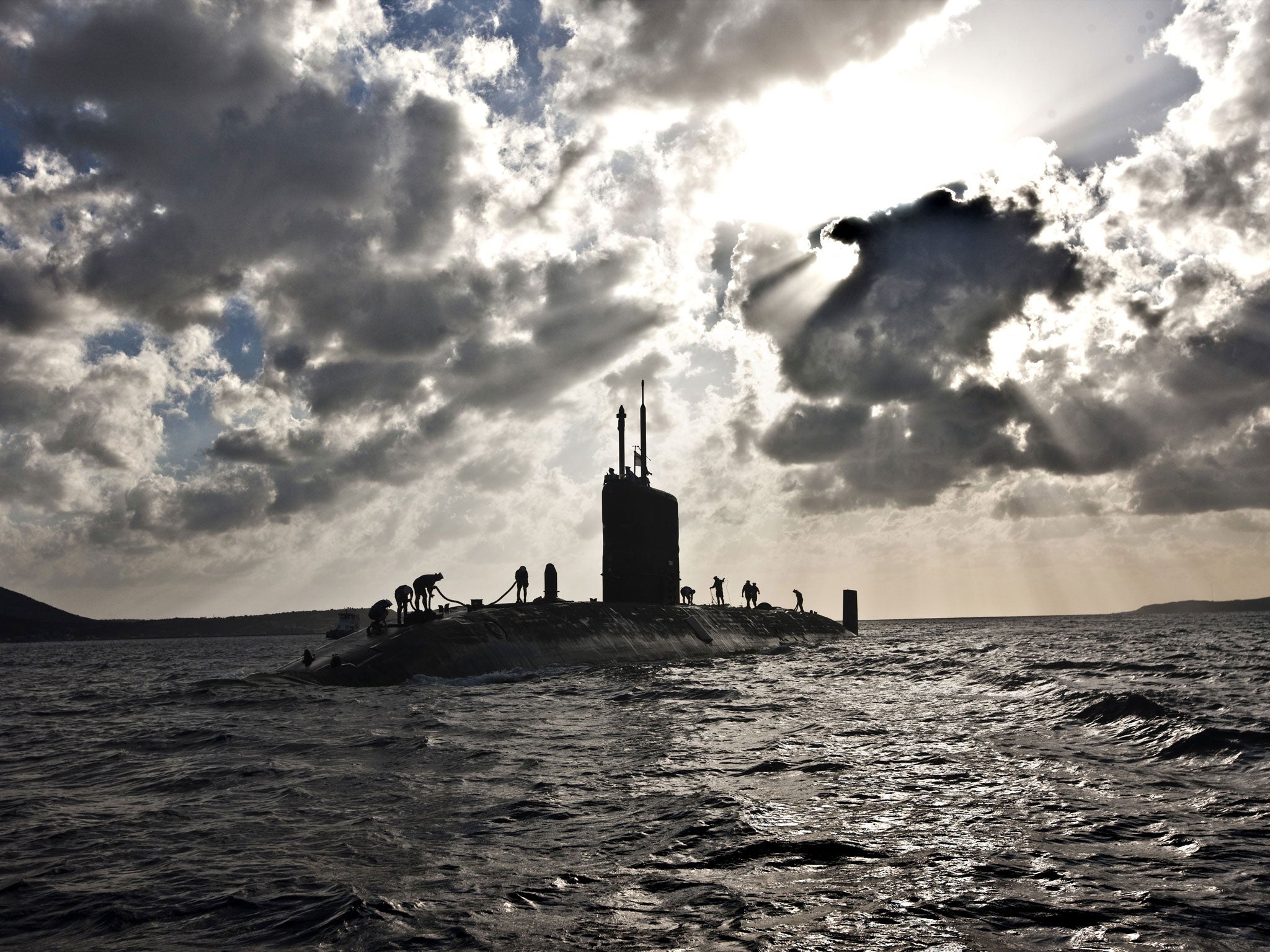The Silent Deep by Peter Hennessy & James Jinks, book review
A compelling account of why submarines still matter

When Sir Arthur Wilson was Admiral of the Fleet in 1901, he summed up the opinion of many senior officers in the Admiralty when he declared submarines to be "underhand, unfair and damned un-English... treat all submarines as pirates in wartime... and hang all crews". Wilson had changed his tune by the First World War, and he became an early proponent of the Royal Navy's development and use of submarines.
As Peter Hennessy and his research assistant, James Jinks, remind us in their authoritative and compelling history of the Royal Navy Submarine Service (RNSS) after 1945, scarcely any part of the world's oceans has escaped the presence of a British "boat" over the past century and, since April 1969, the UK's ballistic missile submarines have not missed a single day on patrol. Nevertheless, this famously silent service and its denizens of the deep remain a mystery to most of their countrymen and, to this day, the Ministry of Defence responds to all enquiries about submarine operations with a terse: "The MoD does not comment on submarine operations."
Now, as our political masters face renewed debate about whether to replace Britain's submarine-carried nuclear deterrent, Trident, the authors have been able to go further than anyone in lifting the Submarine Service's cloak of secrecy. Their beautifully produced, lavishly detailed book was written with unprecedented co-operation from the RNSS itself and with privileged access to documents, personnel and operational submarines.
Hennessy's enthusiasm for his subject is infectious. Clearly a "submarine nut", one can imagine the historian and former political journalist as a spotterish, Cold War-era schoolboy standing on the banks of the River Clyde clutching an I-Spy book of submarines.
The Silent Deep is packed with pictures, diagrams, maps and cutaway illustrations of subs. At first glance, its 800-plus pages – filled with acronyms, numbers and naval jargon – may seem daunting to all but the most dedicated military history enthusiast. But even the lay reader cannot fail to be absorbed by its dramatic tales of cat-and-mouse skirmishes with Soviet hunter-killer submarines, embarrassing spy scandals and lucid accounts of the Falklands War – all enlivened with first-hand testimony from the submariners themselves.
Hennessy and Jinks give us a fascinating, fly-on-the-wall account of "going deep" aboard HMS Tireless to watch executive-officer candidates take the Navy's elite Submarine Command Course, universally known as "the Perisher". Run twice a year since 1917, it is widely regarded as one of the toughest command courses in the world, with a failure rate of 25 percent. "It's both a training and an initiation rite, all performed in front of an entire crew," note the authors. "Those who pass feel they are a special breed."
The Cold War may have ended in 1990, but not for the RNSS. The story from Polaris to Trident and now "Successor" is a key theme of The Silent Deep. Hennessy and Jinks are convinced that, with Russian submarines once again being detected off Britain's shores, the Navy will continue to call upon its "special breed" of men – and, in the not too distant future, women – to uphold our nuclear deterrent and last line of national defence.
They argue: "Our hunch is that there will almost certainly be a British bomb with a 'bloody Union Jack on top of it' somewhere in the grey wastelands of the North Atlantic in the 2030s, 2040s and 2050s, carried by one of the submarines currently being laid out on the computer screens in Barrow's Blue Lagoon."
Allen Lane, £30. Order at £25 inc. p&p from the Independent Bookshop
Subscribe to Independent Premium to bookmark this article
Want to bookmark your favourite articles and stories to read or reference later? Start your Independent Premium subscription today.

Join our commenting forum
Join thought-provoking conversations, follow other Independent readers and see their replies